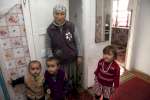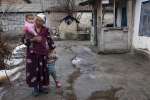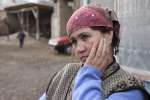- Text size
 |
|  |
|  |
| 
- Français
Preventing Statelessness: Southeast Asian countries share lessons
News Stories, 29 October 2010
BANGKOK, Thailand, Oct. 29 (UNHCR) – Cambodia's dramatic success in documenting its citizens after the devastating Khmer Rouge years and Viet Nam's new nationality law that has rescued thousands of "economic brides" from stateless limbo have been shared with experts from nine Southeast Asian countries as model ways countries can prevent and reduce statelessness.
Yim Sam Ol, from Cambodia's Ministry of Interior, told some 60 experts at a Bangkok roundtable of his country's struggle to rebuild after all citizen registration documents were destroyed between 1975 and 1979. Using mobile teams to reach into the most remote areas, Cambodia managed to raise the percentage of birth certificates issued from five percent to more than 90 percent in just over two years.
"Birth registration is an important measure that can prevent statelessness," said Mark Manly, head of UNHCR's statelessness unit and one of the organizers of the roundtable, co-hosted by the National Human Rights Commission of Thailand and UNHCR.
The two-day meeting, which ended Friday, was financed by the European Commission and comes as UNHCR begins a year-long campaign to help the world's estimated 12 million stateless people and encourage more countries to sign up to the 1954 Convention relating to the Status of Stateless Persons and the 1961 Convention on the Reduction of Statelessness.
"The Cambodian registration campaign underlined the link between Cambodia and its citizens, which is an important step to prevent statelessness if Cambodians ever find themselves abroad without documents," Manly said.
At the same time, he added, "lack of documentation does not make you stateless." Manly explained that refugees, migrant workers and other displaced people often can't prove their status, but actually do have citizenship somewhere.
True statelessness comes about when a person has no claim to nationality in any country, sometimes because of dissolution of states (such as the former Soviet Union), or often because of a conflict of laws concerning citizenship and marriage.
Thousands of Vietnamese women who married Taiwanese men were left stateless because they were forced to renounce their citizenship in order to apply for citizenship in Taiwan. But if their marriages broke up before they got their new nationality, they – and often their children – came back to Viet Nam stateless, even in the country of their birth.
In 2009, Viet Nam passed a new nationality law that allows for dual citizenship and prevents women from falling into that limbo. Viet Nam has also systematically set about restoring citizenship to its stateless divorced women, most of who married for economic reasons.
Trinh Thi Hong Anh, from Viet Nam's Social Affairs Ministry, told the gathering that her ministry also intends launch a media campaign warning women about the potential hazards of marrying abroad. Vocational training and counseling will also be offered to women and children who come back home after failed marriages.
Rafendi Djamin, Indonesia's representative to the ASEAN (Association of Southeast Asian Nations) Intergovernmental Commission on Human Rights, said ASEAN is quite open to learning from the whole world, "but we can also learn well from neighboring countries."
"We see a lot of similarities in terms of values and norms, so some of the lessons are more applicable because of similar values in Southeast Asian countries," he said.
Taking "best practices" from the meeting, Djamin said, the next step is to see what can be done to identify, prevent and reduce statelessness by working at a regional level.
By Kitty McKinsey in Bangkok


































